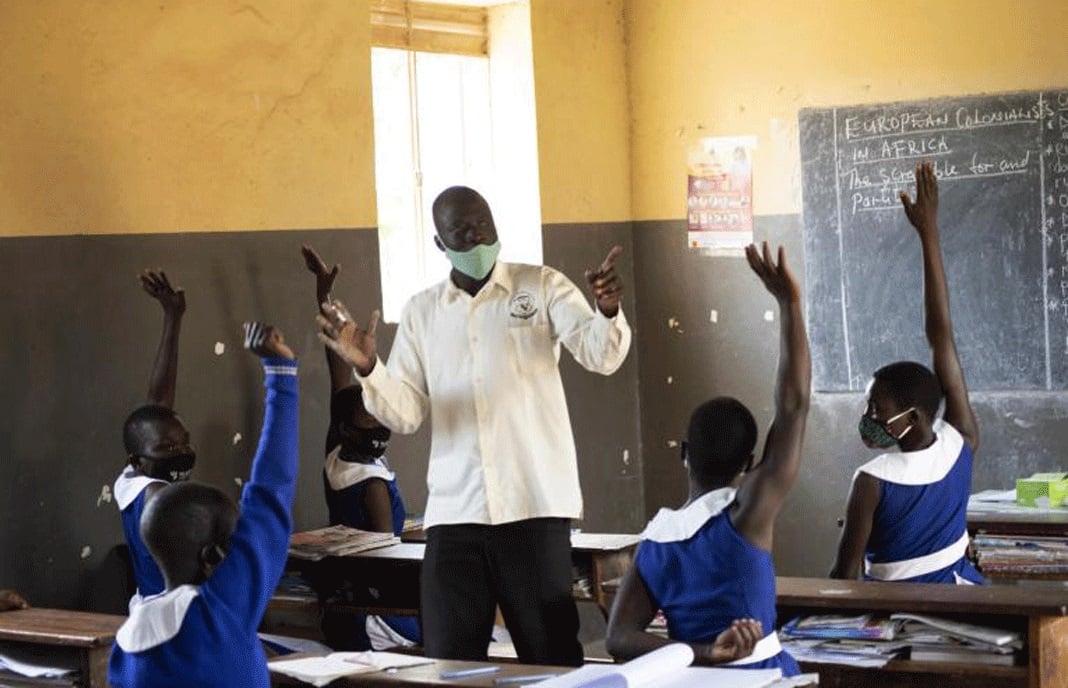Task ahead of new Nema boss

Dr Akankwasah Barirega, the new Nema executive director. PHOTO/COURTESY
What you need to know:
- His role comes with a responsibility to salvage the image of the authority for the many harms being done to the environment.
Dr Akankwasah Barirega is next month switching gears from head of department at Uganda Wildlife Authority to become the new executive director of National Environment Management Authority (Nema).
“Dr Akankwasah Barirega has been appointed as our new Executive Director. Appointment takes effect on September 1, 2021. Welcome aboard @ABarirega,” read an announcement on the NEMA Twitter handle @nemaug.
He replaces Dr Tom Okurut, who retired after 10 years of service and his contract could no longer be renewed as per Section 22 of the Nema Act, 2019.
The Act states: “The Executive Director shall serve for a period of five years and is eligible for reappointment for one more term.”
The executive director is appointed by the line minister on the recommendation of the board on such terms and conditions as may be specified in the instrument of appointment.
Dr Akankwasah joins the team at Nema with a vision to further Uganda’s cause for a green economy.
“Thank you very much for the warm welcome. Looking forward to contributing to the noble task of sustainable development and transformation of our country through a green pathway,” he tweeted on Wednesday.
However, his new role comes with a responsibility to salvage the image of the authority for the many harms being done to the environment in the face of climate variabilities affecting livelihoods due to environmental degradation.
Land title cancellation for environment degraders have ended in court battles with the authority.
The environment regulatory body is also battling land use and other associated problems that lead to degradation and other natural resources management such as rivers, lakes and swamps that have been grossly affected by human activities as Uganda’s population continues to grow.
Environmental, climate and other sustainable development laws are also a challenge to implement as most wetlands, lake shores and river bank encroachers continue to act with impunity, violating requirements of buffer zones for conservation.
Pollution of the environment with hazardous wastes, including the yet to be drilled oil in the Albertine region are among concerns that Dr Akankwasah comes in to handle.
There is also public outcry of unfulfilling Environmental Impact Assessment before projects can begin on land, especially near coveted natural resources like lakes and rivers.
Areas around Namanve stream that has an industrial park are reported to have waste that has affected the quality of water .
Fisheries experts have also worried of worsening pollution of Lake Victoria.
In March 2010, the then Nema deputy executive director, Mr Gerald Sawula, told Reuters News: “The water has become so thick from affluent that is being discharged directly into the lake because the wetlands that used to filter it have all been destroyed by developers. As more algal blooms, phosphates, nitrates, heavy metals and faecal matter all pile into the lake, it is going to be harder and harder to clean the lake.”
Eleven years later, what Mr Sawula talked about, among other environmental challenges, are conditions that Dr Akankwasah comes into office to handle, adding onto contributions his predecessor and his team made to the authority.
Ban on plastics
Efforts to save the ecosystem by banning single use plastics have so far been futile as more unsegregated wastes continue to pollute water catchment areas and eventually polluting water bodies.
While appearing on national television on Tuesday, the Minister of State for Environment, Ms Beatrice Anywar, said Uganda is considering a total ban of plastics, a talk that has lingered in the corridors of power for more than five years.
“It’s the business community that wants to impose the plastic bags on us but this time round we’re going for a total ban,” Ms Anywar said. Nema continues to struggle to find the balance for the interdependence between ecosystems and the services they provide to sustain human well-being.



